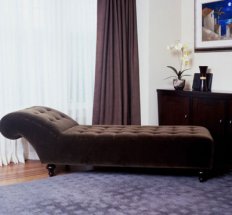50 years of psychoanalytic experience

Conference given by the psychoanalyst, Juan Francisco Rodríguez, at the Asociación Psicoanalítica de Madrid, on the 16th of November, 2013.
J. F. Rodríguez, a much respected and beloved psychoanalyst of the APM talked about his experience as a psychoanalyst for the past 50 years.
His career began with a double interest for the Humanities and the Sciences. During the 50s, while he studied medicine, he wrote, published in specialized journals, and sought out writers such as Pío Baroja and José Camilo Cela to converse with them.
His introduction to psychoanalysis was through his own personal psychoanalysis that he began with an Argentinean psychoanalyst that had immigrated to Spain, Jaime Tomás. Since there was no formal psychoanalytic training in Spain at that time, Jaime Tomás encouraged him to go to Argentina to train and so he did, as many other Spanish psychoanalysts have done by going to psychoanalytic institutes in Switzerland, France, England and Argentina to receive training.
He trained in Argentina for 12 years and then came back to Madrid where the APM had been created. Since then he has written 35 psychoanalytical articles, given many seminars, been the supervisor and analyst of a number of colleagues, and came to be the President and the Director of the Institute of the APM.
As the years have passed and he has accumulated clinical experience, he has felt ever greater conviction in his work and feels a diminishing need for theoretical baggage in order to understand his patients. He is adamant about the need for the psychoanalyst to feel free to think, and for him to maintain an extreme respect for the patient’s autonomy, as Thomas Szaz stressed, and not to try to influence the patient to think or act like he does.
He also points out the dangers of being too demanding ––both for the patient and the analyst–– since it hinders psychoanalytic work as it does not allow one to apply the calm and patient thinking that is necessary to detect unconscious processes. This has to do with accepting one’s limitations, acknowledging that certain ideals are unreachable and that one cannot be anything but what one is.
In an interesting condensation of the goals of the psychoanalytic task, Rodríguez suggests that therapeutic work consists of helping the patient to reunite with himself: to be able to bring together all the pieces that have been banished from consciousness and to tolerate and integrate them there.
Developing this idea, Rodríguez suggests that there is a similarity between mental health and democratic processes; both require the tolerance and the integration of differences, of the most complicated aspects of the system (mental or social) in order for all the elements that make up the system to be able to live together and there be no need for radical divisions, violent exiles or abuses of power.
